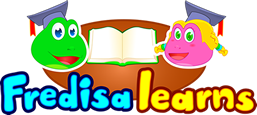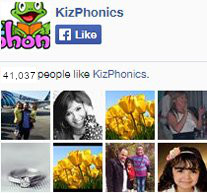Mastering Syllable Words in Phonics Education for Children
A Deep Dive into 2 Syllables Words, 3 Syllables Words, and 4 Syllables Words for Young Learners
The richness of the English language offers a myriad of ways for young minds to explore, learn, and grow. In the context of phonics education, understanding syllables emerges as a foundational skill. Syllables, the beats in a word, help break down seemingly complicated words into digestible chunks. Whether we're talking about 2 syllables words or diving into 4 syllables words, mastering these divisions can significantly boost a child’s reading and pronunciation prowess. Let's embark on this syllabic journey and uncover how multi-syllable words can be both fun and educational.
What are Syllables and Why are they Important?
Syllables can be best described as the beats or rhythms in spoken words. Every syllable contains a vowel sound and may be accompanied by consonant sounds. Recognizing and counting syllables help children decode words, improve their reading pace, and enhance pronunciation.
The Magic of 2 Syllables Words
Words with two syllables often serve as a child's first introduction to the world of multi-syllable phonics. Examples include "bal-loon", "ta-ble", or "flow-er". These words pave the way for:
1. Reading Flow: Understanding breaks in words can enhance a child's fluency and comprehension.
2. Spelling Skills: Recognizing syllables can aid in spelling, as the child can break a word into parts and spell each part.
3. Pronunciation: Proper syllable emphasis ensures correct word pronunciation.
Advancing with 3 Syllables Words
Taking a step further, 3 syllables words introduce a tad more complexity but also offer a wider linguistic landscape. Words like "uni-form", "choc-o-late", or "el-e-phant" provide deeper insights into the rhythm of English.
Benefits include:
1. Advanced Decoding: Children become adept at tackling longer words, preparing them for complex readings.
2. Vocabulary Expansion: As the word length increases, so does the exposure to varied vocabulary.
Embracing the Challenge of 4 Syllables Words
For young phonics enthusiasts ready to take on a challenge, 4 syllables words await. Words such as "tel-e-vi-sion", "in-for-ma-tion", or "au-to-mo-bile" stretch their understanding but in return offer:
1. Enhanced Cognitive Skills: Breaking down longer words demands increased concentration and cognitive engagement.
2. Confidence Boost: Mastering these words can significantly uplift a child's reading confidence.
Making Syllable Learning Engaging with Kizphonics
Platforms like Kizphonics and their blog offer a plethora of resources tailored for syllabic learning. From interactive games focusing on 2 syllables words to worksheets that challenge with 4 syllables words, there’s a wealth of materials to make the learning process dynamic and enjoyable.
Fact Section: FAQs on Syllable Words in Phonics
Why are syllables important in phonics? Syllables help break down words into readable and pronounceable chunks, enhancing decoding, pronunciation, and reading flow.
What are some examples of 2 syllables words? Examples include "bal-loon", "ta-ble", and "flow-er".
How can I teach my child about different syllable words effectively? Using resources from platforms like Kizphonics, engaging in clapping exercises to count word beats, and regular practice with reading can be effective.
Are syllables essential for advanced reading? Yes, mastering syllables sets a strong foundation for reading fluency, comprehension, and tackling complex words with ease.
In conclusion, syllables, from the simplicity of 2 syllables words to the intricacy of 4 syllables words, provide a structured pathway for children to understand and appreciate the beauty of the English language. As they grasp the rhythm and beats of words, they not only become proficient readers but also embark on a lifelong journey of linguistic exploration and love.











